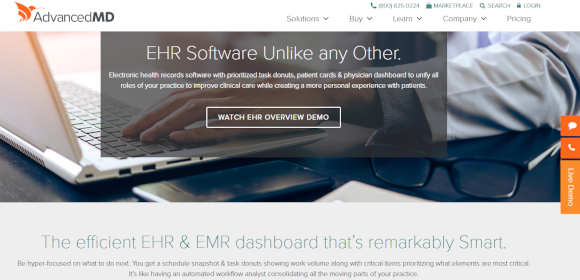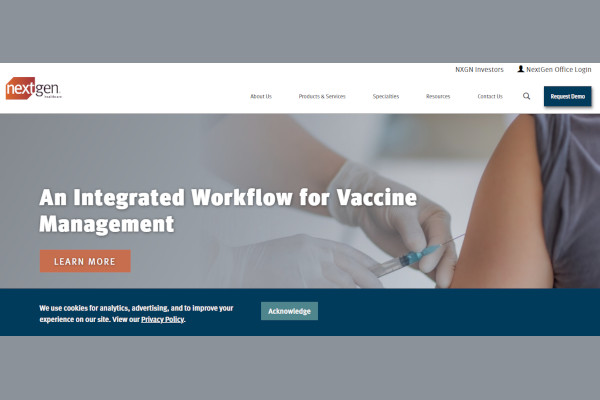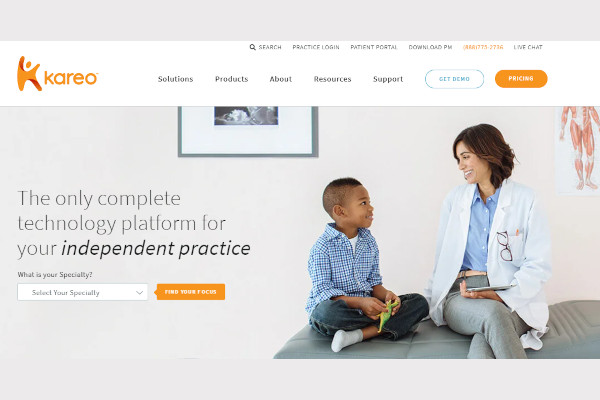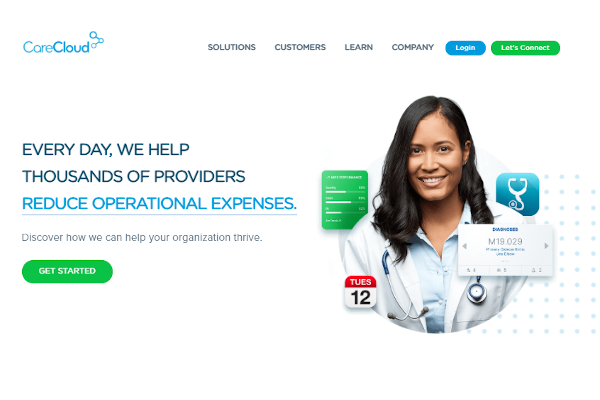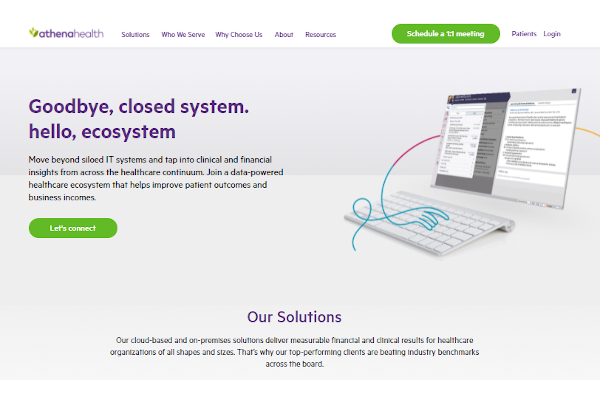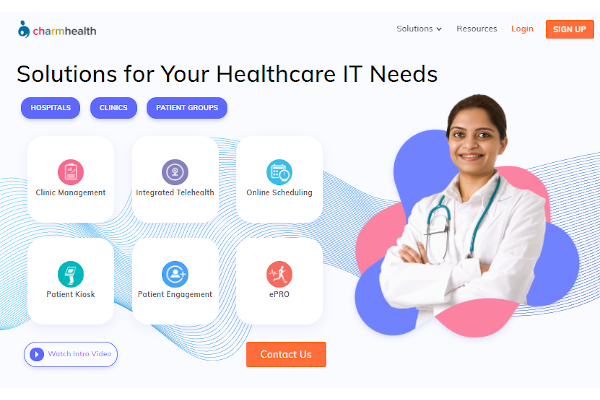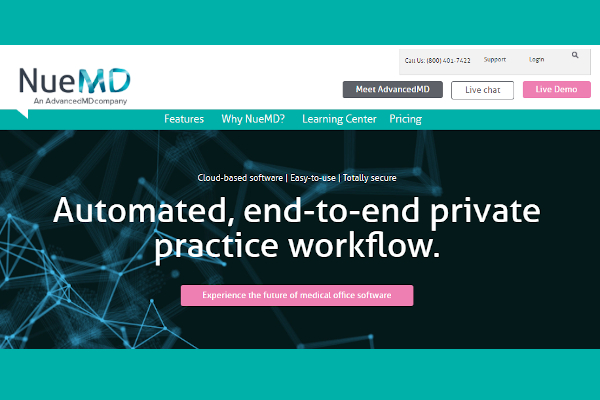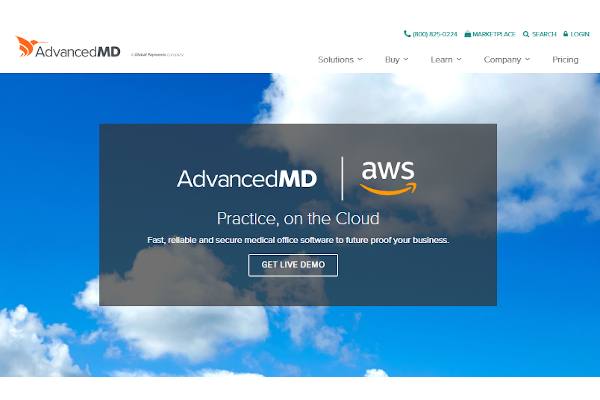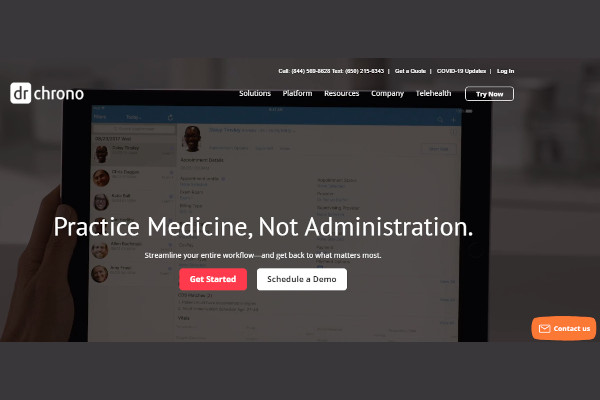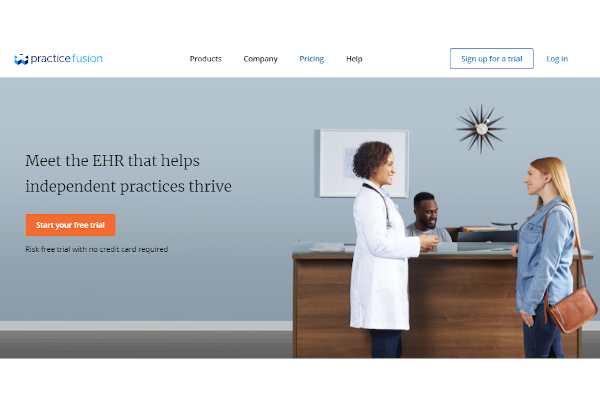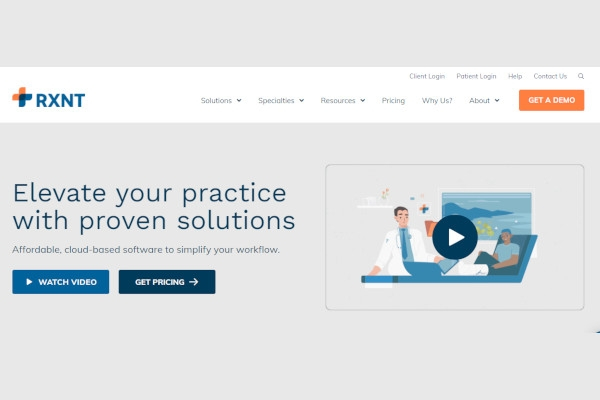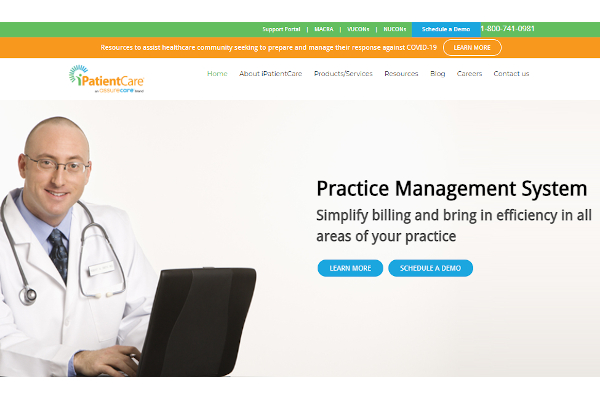Amazon has established Lab 1492 to study and develop new health care technologies. With its Apple Health Records offering, Apple has amplified the capabilities of its Health mobile app by collecting and organizing patient information. Google has created an open-source application programming interface (API) that improves communication across different healthcare platforms.
Accordingly, the EHR scene is hotter than ever. The issue of whether or not to invest in such a pricey system has been answered.” Rather, it’s a matter of “which EHR can endure and best adapt to disruptive technology?””
10+ Best EHR Software
1. NextGen
2. Kareo
3. CareCloud
4. Athenahealth
5. ChARM health
6. NueMD
7. AdvancedMD
8. Drchrono EHR
9. Practice Fusion
10. RXNT EHR
11. IPatientCare
What is EHR Software?
The term “electronic medical records” (EMR) refers to the electronic version of a patient’s medical records history. Electronic health records (EHR) software facilitates the sharing and updating of patient monitoring information across various medical facilities. Additionally, patients may access their own accounts and see their own healthcare records by logging in. Due to the collaborative nature of EHR software, a patient’s profile may include information from all of the professionals engaged in the patient’s care, including pharmacies and labs.
Benefits
When doctors and nurses utilize EHRs, they can see the whole picture of their patient’s health and provide better care. Electronic health records (EHRs) may work along with a wide variety of other programs, including medical scheduling and billing tools.
Features
The following are common features of EHR Software:
- Real-time patient data tracking and data recording
- Healthcare provider functions
- Patient profiles
Top 10 EHR Software
1. Epic
Epic was founded in a basement in 1979, and since then it has created software that has improved the health of millions of people and will continue to do so for years to come.
2. ModMed
Our mission at Modernizing Medicine® is to provide our clients with a comprehensive set of tools for managing the clinical, administrative, and financial elements of their medical practice.
3. NextGen Healthcare
Ambulatory clinics of all sizes can rely on NextGen Healthcare for award-winning solutions, round-the-clock support, and expert consulting services.
4. WebPT
WebPT was founded in 2008 and is now the most widely used outpatient rehabilitation therapy software platform in the United States, serving over 150,000 rehabilitation therapy practitioners in practices of all sizes.
5. EHR Your Way
You may forget about the tedious administrative tasks and concentrate on customer service with this family-owned business.
6. Pabau
The Pabau CRM is a comprehensive solution for managing a medical facility. We facilitate the day-to-day operations of medical facilities by means of either outright automation or simplification of routine procedures.
7. TherapyNotes
When it comes to online EHR and practice management software for mental health clinics, TherapyNotesTM is the gold standard.
8. Allscripts
Offering cutting-edge options for electronic health records (EHR), financial and operational management, population health management, patient engagement, precision medicine, and payer and life sciences.
9. PointClickCare Home Health Care Platform
PointClickCare has been at the forefront of developing cloud-based solutions that meet the needs of providers since the year 2000.
10. eClinicalWorks
eClinicalWorks’ Practice Management (PM) system is ideal for practices of any size. Manages appointments & schedules, streamlines billing, and stores demographic data.
FAQs
Who Uses EHR Software?
EHR software is used by medical professionals (doctors, physicians, primary care physicians, solo practitioners, clinicians, and nurses) to streamline administrative tasks and improve the quality of care they provide to patients. The key advantages of using EHRs by medical professionals and institutions have been discussed. Because of their greater financial and human resources, enterprise hospitals get the most benefits from EHRs. Although smaller clinics and practices may have difficulty affording or making the most of an EHR, this does not rule them out as potential users.
What are the different kinds of EHR Software?
Electronic health records (EHRs) may be categorized as either “on-premise,” “cloud,” or “hybrid cloud” solutions. The use of mobile apps, such as those found on the iOS and Android platforms, is also becoming commonplace and anticipated. The size of the practice or organization deploying the EHR is another aspect that may lead to distinct “types” of EHR software. (At the moment, however, there are no more nuanced classifications of EHRs beyond solo practitioner/small clinic and enterprise hospitals.
What are the issues with EHR Software?
The interoperability of electronic health records, or the capacity of different healthcare IT systems to successfully “speak” to one another, is a more intriguing topic. After all, an EHR’s primary purpose is to assist medical facilities in developing a holistic picture of their patients, thus it must be capable of actively consolidating data from several sources.
When implemented properly, an EHR may improve productivity across the healthcare system. Moving from a paper-based environment to one on the cloud is a godsend to the already overworked doctors, nurses, and other medical workers. This is particularly true if the latter exists within the limits set by HIPAA, which might aid a healthcare facility in meeting regulatory requirements.
Related Posts
10+ Best Trust Accounting Software for Windows, Mac, Android 2022
10+ Best Patient Portal Software for Windows, Mac, Android 2022
13+ Best Virtual Reality (VR) Software for Windows, Mac, Android 2022
12+ Best Bed and Breakfast Software for Windows, Mac, Android 2022
15+ Best Resort Management Software for Windows, Mac, Android 2022
14+ Best Hotel Channel Management Software for Windows, Mac, Android 2022
12+ Best Social Media Monitoring Software for Windows, Mac, Android 2022
10+ Best Transport Management Software for Windows, Mac, Android 2022
10+ Best Other Marketing Software for Windows, Mac, Android 2022
10+ Best Top Sales Enablement Software for Windows, Mac, Android 2022
8+ Best Industry Business Intelligence Software for Windows, Mac, Android 2022
10+ Best Insurance Agency Software for Windows, Mac, Android 2022
10+ Best Leave Management Software for Windows, Mac, Android 2022
10+ Best Mobile Event Apps Software for Windows, Mac, Android 2022
10+ Best Online CRM Software for Windows, Mac, Android 2022
